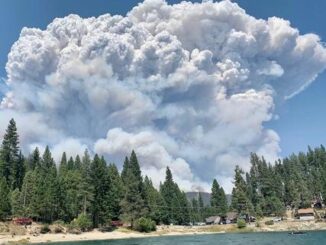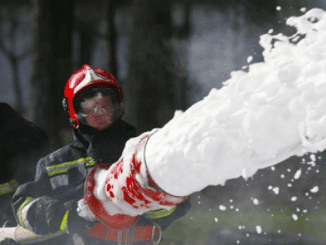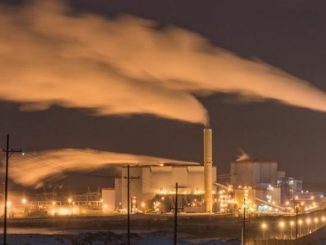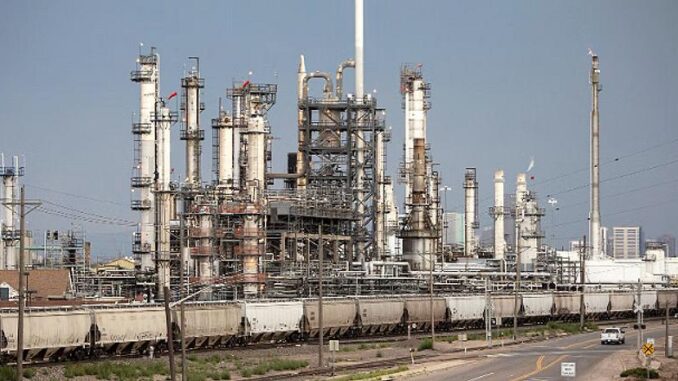
DENVER, Colorado, September 15, 2025 (ENS) – Environmental justice and conservation groups today sounded the alarm over a backroom deal to avoid enforcement of key water permit provisions that was forged between the State of Colorado and the Suncor Energy – Commerce City Refinery, a petroleum refining facility in Commerce City, just northeast of Denver.
The settlement agreement, executed on July 23, provides a pathway to eliminate permit provisions for Suncor and weakens public disclosure requirements, according to Earthjustice, a nonprofit environmental law organization representing GreenLatinos, Denver Trout Unlimited, and the Colorado Sierra Club in the settlement.
Environmental justice and conservation groups were left out of the settlement process, despite the fact that they were admitted as interveners in the case in support of the Water Quality Control Division. The division did not even inform the groups of the July 23 settlement until several weeks after it had been signed.
“Communities living in the shadow of Suncor have borne the brunt of toxic pollution for decades, and once again their voices have been shut out,” said Jessica Herrera, counsel with GreenLatinos.
“A closed-door deal that weakens permit protections is not just a bureaucratic failure, it is a betrayal of the Latino, immigrant, and working-class families who live, work, and play along these waterways.”
Colorado cannot claim to prioritize environmental justice while cutting impacted communities out of decisions that put their health and future at risk,” Herrera said. “We deserve transparency, accountability, and strong enforcement, not backroom bargains with polluters.”
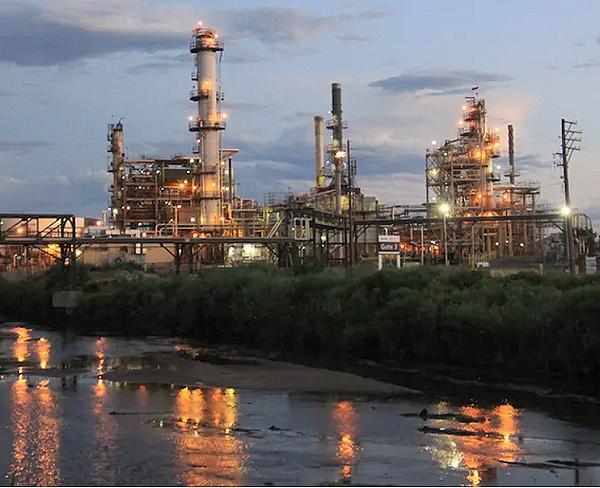
Suncor is a Canadian integrated energy company headquartered in Calgary, Alberta, that extracts oil sands and produces oil, gas, and refined products. The company operates refineries and retail networks, including the Petro-Canada brand, and also invests in renewable energy projects. Suncor’s operations include oil sands development, production, and upgrading; conventional and offshore oil and gas production; and petroleum refining and marketing.
Suncor operates the only oil refinery in Colorado, located in Commerce City, which produces gasoline, diesel fuel, and asphalt. With three plants at two refineries, this facility processes approximately 98,000 barrels/day and contributes US$2.5 billion to Colorado’s economy annually. The company purchases crude oil from the Denver-Julesburg Basin, processes it in Commerce City, and sells nearly 95 percent of its Colorado-made products within the state.
In March 2024, the Colorado Water Quality Control Division updated Suncor’s water pollution permit for the Commerce City refinery.
Earthjustice, representing GreenLatinos, Sierra Club, and Denver Trout Unlimited, challenged several of the permit’s conditions in administrative court in April 2024.
The three groups argued that the permit set a PFAS “forever chemical” limit which was too high, had inadequate PFAS monitoring requirements, gave Suncor far too long to come into compliance, and failed to prevent groundwater seepage of benzene and PFAS into Sand Creek and the Burlington Ditch. This challenge is still pending.
“Whenever a taxpayer-funded agency strikes a backroom deal with a private polluter that jeopardizes public health and our vital watersheds, we must demand accountability,” said Nic Hall, president of Denver Trout Unlimited.

“The Denver South Platte River is not an industrial sewer. It’s a critical source of drinking water, a thriving recreational haven, and essential habitat for fish and wildlife cherished by Front Range communities,” Hall said.
Suncor also challenged a number of additional permit conditions in administrative court, including the permit’s salt effluent limitations, arsenic limitations, and its public notification requirements. Environmental justice and conservation groups intervened in this case in support of the division.
In July, Suncor and the division reached a settlement agreement on this appeal behind closed doors, excluding intervening groups from discussions even though they were admitted as a party to the case.
Under the agreement, the division will allow Suncor to seek removal of permit conditions the refinery has challenged; in the meantime the division will not enforce those permit terms. This is not the first time that such an agreement has occurred. The State of Colorado has a history of capitulating to Suncor and letting it thwart environmental regulations.
“Colorado leaders like Governor [Jared] Polis and Colorado Department of Public Health and Environment officials talk the good talk about the environment but when it comes down to it, they repeatedly cave in to industry demands,” Ramesh Bhatt, conservation chair at Colorado Sierra Club, said.
“In the current case, they went out of the way to shut out environmental groups and community members and reached a dirty deal with Suncor behind closed doors. Because of this, communities downstream of Suncor are going to continue to be exposed to dangerous chemicals like PFAS for years to come,” Bhatt warned.
“It is entirely inappropriate for the state of Colorado to negotiate a settlement with Suncor behind closed doors that provides a free pass for the refinery to pollute our waterways, while weakening its obligation to inform the public,” said Michael Freeman, senior attorney with Earthjustice’s Rocky Mountain Office.
“Environmental justice and conservation groups were admitted as interveners to help prevent this exact scenario, but we were cut out of the process entirely. Impacted community members’ voices deserved to be heard and that did not happen,” Freeman complained.
Environmental justice and conservation groups plan to continue fighting the problematic provisions included in their appeal. They will also monitor Suncor’s discharges and intervene if necessary if Suncor violates the terms of its permit.
Featured image: The Suncor refinery in Commerce City just north of Denver. undated (Photo by Martin do Nascimento / Earthjustice)
© 2025, Environment News Service. All rights reserved. Content may be quoted only with proper attribution and a direct link to the original article. Full reproduction is prohibited.

